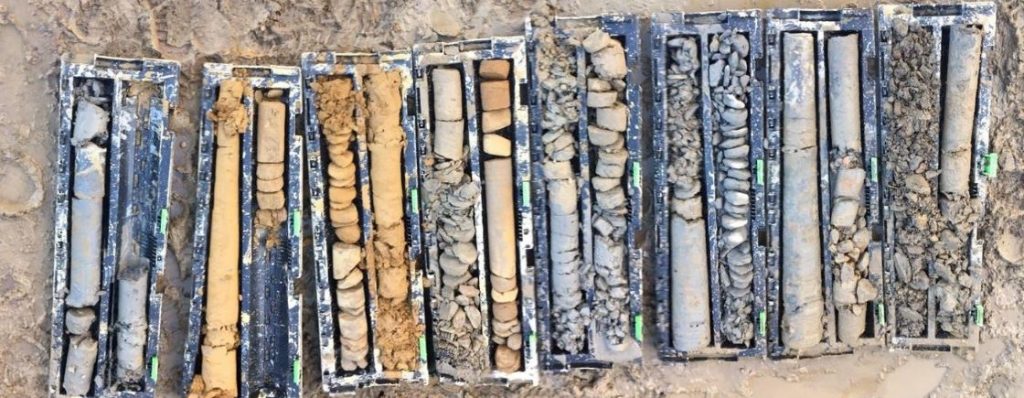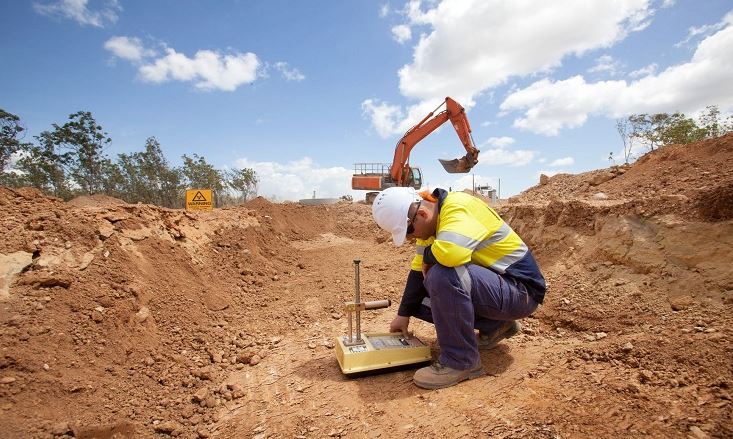Suppose you’re planning to install a pool in your backyard. In that case, it’s important to ensure that the ground is stable enough to support the weight of the pool and that there are no potential issues that could impact the installation or maintenance of the pool. This is where soil investigation comes in. By conducting soil tests and analyses, you can gain a wealth of information about your property’s soil composition, drainage capabilities, and potential soil issues.
This information can help you make informed decisions about pool installation and maintenance and save you from costly and time-consuming repairs down the line. In this blog post, we’ll explore what soil investigation can reveal about your property before pool installation, including soil composition, drainage capabilities, potential soil issues, and how this information can impact pool installation and maintenance.
Soil Composition
Soil composition is important to consider when installing a pool in your backyard. The soil type on your property can impact the pool’s stability and ability to withstand external factors such as rainfall, temperature changes, and soil erosion.

Different soil types can be found on a property, including clay, silt, sand, and loam. Each type of soil has unique characteristics that can impact the pool’s stability. For example, clay soil tends to expand and contract with moisture changes, while sandy soil does not retain water well and may cause the pool to shift over time.
Determining the soil composition of your property requires a soil test, which a licensed soil engineer from a company like Australian Soil Investigations Queensland can conduct. Several soil tests can be conducted, such as soil boring or a soil pit excavation. These tests involve taking soil samples from different depths to determine the type of soil and its properties.
Based on the soil test results, a soil engineer can make recommendations on the appropriate measures to ensure that the pool is installed on stable ground. For example, suppose the soil composition on your property is predominantly clay. In that case, the soil engineer may recommend installing additional reinforcement, such as rebar, to prevent shifting or cracking of the pool over time.
In summary, understanding the soil composition of your property is crucial before installing a pool. Soil tests conducted by a licensed soil engineer can reveal the type of soil on your property and its unique characteristics, which can impact the stability and longevity of your pool. Based on this information, a soil engineer can recommend the proper installation and maintenance of the pool.
Drainage Capabilities
In addition to soil composition, proper drainage is another important factor to consider before installing a pool in your backyard. Proper drainage is important to ensure that water is effectively and efficiently directed away from the pool, preventing damage from water accumulation and erosion.
Soil investigation can reveal the drainage capabilities of your property’s soil. Various factors, including the texture, structure, and slope of the soil, influence soil drainage. A soil test can help determine the drainage capabilities of your property’s soil by analyzing its porosity, permeability, and water-holding capacity.
Several types of soil tests can be conducted to determine the drainage capabilities of your property’s soil. For example, a percolation test can determine how quickly water is absorbed by the soil, while a soil infiltration test can measure the amount of water the soil can absorb over time. A soil engineer may also perform a dye test, where a coloured dye is added to the water and poured onto the soil, allowing the engineer to observe how the water moves through the soil and how quickly it drains.
Based on the soil test results, a soil engineer can recommend appropriate drainage measures to prevent water accumulation around the pool. For example, if the soil test indicates poor drainage capabilities, a soil engineer may recommend installing a French drain or a sump pump to direct water away from the pool.
In summary, proper drainage is crucial for pool installation and maintenance. Soil investigation can reveal the drainage capabilities of your property’s soil, allowing a soil engineer to recommend proper drainage measures to prevent water accumulation and erosion around the pool. Various soil tests can be conducted to determine soil drainage capabilities. A soil engineer can make recommendations based on the test results to ensure a successful and long-lasting pool installation.
Potential Soil Issues
While soil composition and drainage are important factors to consider before installing a pool, many potential soil issues can impact pool installation and maintenance. Some common soil issues may include expansive soil, erosion, and settlement.
Expansive soil can cause significant damage to a pool and the surrounding area. Expansive soil contains minerals that cause it to expand and contract with changes in moisture levels. This can lead to cracking the pool deck, walls, and surrounding concrete. Soil investigation can reveal the presence of expansive soil on your property, and a soil engineer can recommend appropriate solutions, such as soil stabilization, to prevent damage to the pool.
Soil erosion can also be a problem around the pool area, particularly if the property is sloped or prone to heavy rainfall. Erosion can cause soil to shift, leading to the uneven or unstable ground around the pool. Soil investigation can identify areas where erosion is a concern. A soil engineer can recommend measures to prevent further erosion, such as installing retaining walls or adding vegetation to help stabilize the soil.
Soil settlement can also cause problems with pool installation and maintenance. Settlement occurs when soil compresses or sinks due to weight or other factors. This can cause the pool to shift, leading to cracks or other damage. Soil investigation can reveal areas where soil settlement may occur, and a soil engineer can recommend solutions such as soil compaction or adding additional support under the pool.
A soil engineer can recommend appropriate solutions if potential soil issues are discovered during soil investigation. These solutions may include soil stabilization, compaction, or additional support under the pool. Addressing potential soil issues before installing the pool can prevent costly and time-consuming repairs.

Potential issues such as expansive soil, erosion, and settlement can impact pool installation and maintenance. Soil investigation can identify potential soil issues, and a soil engineer can provide recommendations for appropriate solutions to prevent damage to the pool. Homeowners can ensure a long-lasting and safe installation by addressing potential soil issues before installing the pool.
Impact on Pool Installation and Maintenance
The information gathered during soil investigation can significantly impact the installation and maintenance of a pool. Understanding a property’s soil composition and drainage capabilities can impact pool construction and maintenance requirements, as well as determine the appropriate solutions for potential soil issues.
Soil composition can impact the pool’s construction, as different types of soil require different methods for installation. For example, if the soil is predominantly clay, it may be necessary to add additional reinforcement, such as rebar, to prevent shifting or cracking of the pool over time. The soil composition can also impact the maintenance of the pool, as certain soil types may require more frequent maintenance, such as cleaning or resurfacing the pool.
Similarly, drainage capabilities can impact both pool installation and maintenance. Poor drainage can lead to water accumulation around the pool, which can cause damage and require frequent maintenance. By understanding the drainage capabilities of the property, appropriate drainage solutions such as a French drain or a sump pump can be installed to prevent water accumulation and damage to the pool.
In addition, if potential soil issues are discovered during soil investigation, appropriate solutions can be recommended to prevent damage to the pool. These solutions may include soil stabilization, compaction, or additional support under the pool. Addressing potential soil issues before installing the pool can prevent costly and time-consuming repairs and ensure a long-lasting and safe installation.
In summary, understanding a property’s soil composition and drainage capabilities is crucial for both pool installation and maintenance. By determining these factors through soil investigation, appropriate solutions can be recommended to ensure proper installation, prevent damage, and ensure a long-lasting and safe installation. Proper maintenance and repair of the pool will also be influenced by the soil composition, drainage capabilities and potential soil issues discovered during soil investigation.

